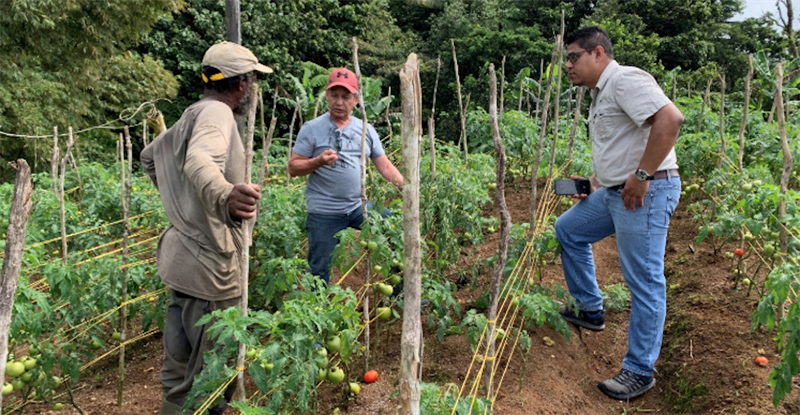 Saint Lucia has charted a new course in sustainable agriculture through a strategic partnership with Zamorano University in Honduras and the Food and Agriculture Organization (FAO). The initiative, led by the Ministry of Agriculture, Fisheries, Food Security and Rural Development, focuses on building local expertise in biological pest control, empowering officers and technicians to reproduce and apply natural enemies of pests.
Saint Lucia has charted a new course in sustainable agriculture through a strategic partnership with Zamorano University in Honduras and the Food and Agriculture Organization (FAO). The initiative, led by the Ministry of Agriculture, Fisheries, Food Security and Rural Development, focuses on building local expertise in biological pest control, empowering officers and technicians to reproduce and apply natural enemies of pests.
This shift toward eco-friendly solutions aims to help farmers reduce chemical dependence while strengthening national food security and environmental resilience.
Chief Plant Research Officer in the Plant Research and Development Division, Hannah Dupal Romain, explained that the partnership is equipping Saint Lucia’s officers with vital knowledge and hands-on experience in biological control techniques.
“The consultants from Zamorano University are assisting our officers in understanding the natural enemies that exist in the environment, how to mass-produce them, and how to develop them into products that farmers can use to manage other pests and diseases. We are currently training two technicians at the lab, who will be able to produce various types of natural enemies for field release, allowing farmers to reduce their reliance on chemical use,” noted, Chief Plant Research Officer, Romain.
The initiative builds upon Saint Lucia’s past success in the use of biological control, most notably during the 1997 incursion of the pink mealybug, when natural enemies were introduced to manage the pest. That experience demonstrated the long-term benefits of reducing chemical dependency while improving crop health and productivity.
Head of the Bio-Control Unit at Zamorano University, Rogelio Trabanino, highlighted the tangible progress being made at the local laboratory through this collaboration.
“We are currently training two technicians at the lab who will be able to produce different types of natural enemies for release in the field. This will allow farmers to significantly reduce their use of chemical inputs,” he added.
Building on the ongoing laboratory efforts, Saint Lucian Microbiologist Shermil St. Croix further strengthened the team’s expertise through a month-long, hands-on training programme in Honduras. The intensive training provided practical exposure to advanced biological control techniques, complementing the work being developed locally.
“We had a training stint in Honduras, where we spent a month focusing on the reproduction of biological control agents. The training emphasized the use of microbes as biological controls and biofertilizers. We also explored the application of natural enemies, as well as entomopathogenic fungi and nematodes, with the aim of conducting preliminary trials in controlled environments such as cellulose before applying them in the field,” explained Microbiologist St. Croix.
The use of biological control represents the Ministry of Agriculture’s forward-looking shift in agricultural practices, one that aligns with Saint Lucia’s broader commitment to green innovation and food system transformation.




